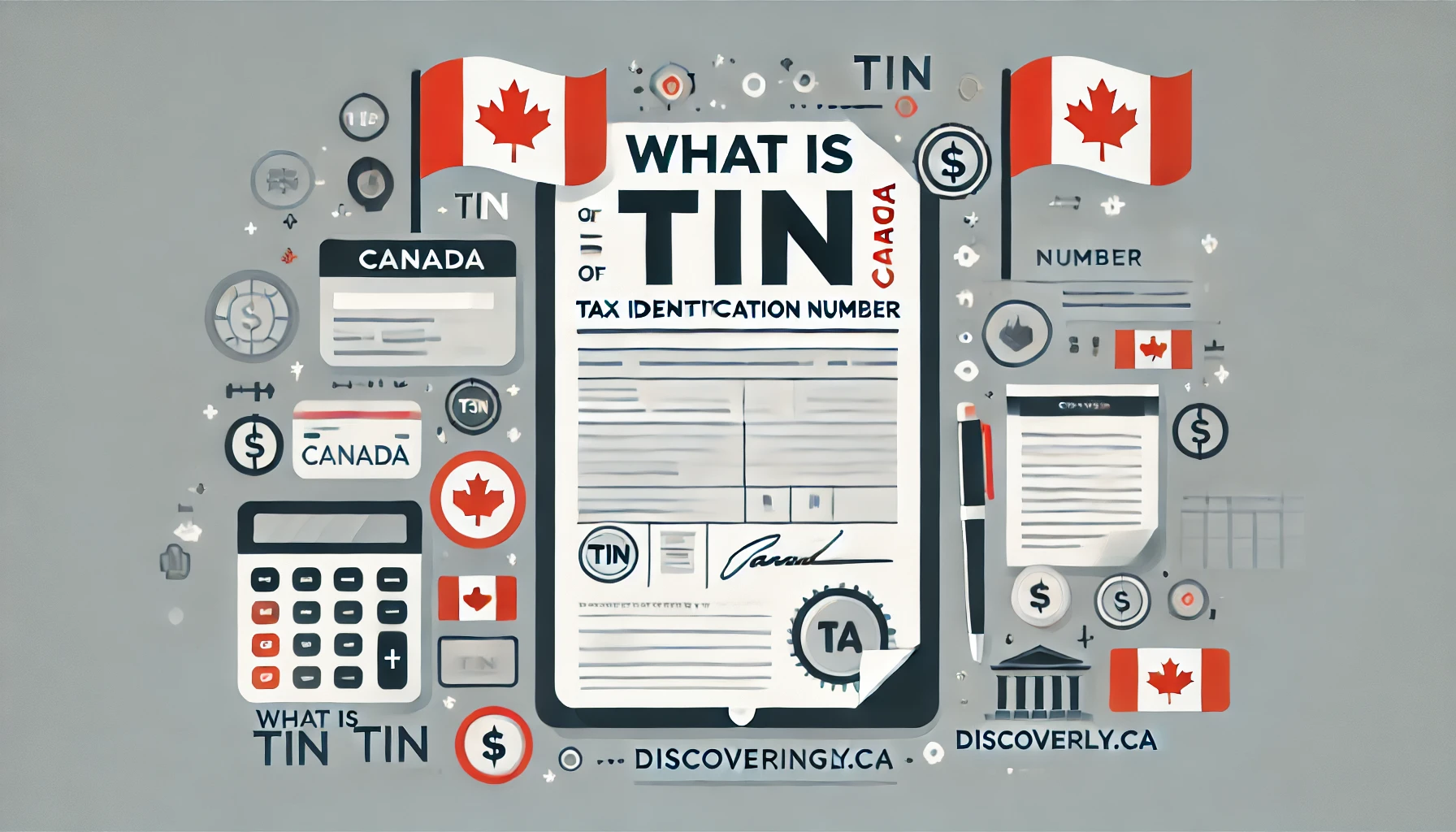What Is a TIN in Canada? Understanding Tax Identification Numbers
Introduction
In Canada, the tax system is structured to ensure compliance and facilitate financial transparency for individuals and businesses. A critical element of this system is the Tax Identification Number (TIN). But what exactly is a TIN in Canada, and how does it function? This article delves into the concept of TINs, their different types, and their role in the tax landscape for Canadians.
What Is a TIN in Canada?
A Tax Identification Number (TIN) in Canada is a unique number assigned to individuals, businesses, and other entities for tax-related purposes. The Canada Revenue Agency (CRA) uses TINs to track income, tax payments, and compliance with tax regulations.
Key Features of a TIN:
- Unique Identifier:
- Each individual or entity has a distinct TIN to ensure accurate identification.
- Essential for Tax Processes:
- Used for filing taxes, accessing benefits, and conducting financial transactions.
- Mandatory for Most Taxpayers:
- Whether you’re an individual or a business, having a TIN is crucial for tax compliance.
Types of TINs in Canada
Canada assigns different types of TINs depending on the taxpayer’s role and purpose:
1. Social Insurance Number (SIN)
- Used by individuals for income reporting and accessing government benefits. It acts as the primary TIN for personal tax purposes.
2. Business Number (BN)
- Issued to businesses for tax filing, GST/HST registration, payroll accounts, and corporate transactions.
3. Individual Tax Number (ITN)
- Designed for individuals who cannot obtain a SIN, such as non-residents earning income in Canada.
4. Temporary Tax Number (TTN)
- Assigned for temporary use when a permanent TIN (like a SIN or ITN) is not yet available.
Why Is a TIN Important?
TINs are essential for managing taxes and ensuring smooth interactions with the CRA. Here are the key reasons why TINs matter:
1. Ensures Tax Compliance
- Tracks income, deductions, and tax payments to ensure taxpayers meet their legal obligations.
2. Facilitates Tax Filing
- Simplifies the process of submitting accurate tax returns for individuals and businesses.
3. Enables Access to Benefits
- Required for government programs such as the Canada Child Benefit (CCB) and GST/HST credits.
4. Supports Business Operations
- Essential for businesses to register for tax accounts, file returns, and conduct transactions.
5. Prevents Fraud
- Unique identification helps reduce errors and protect against fraudulent activities.
How to Obtain a TIN in Canada
The process of obtaining a TIN varies depending on the type required:
1. Social Insurance Number (SIN)
- Where to Apply: Service Canada
- Requirements: Proof of identity (e.g., birth certificate, permanent resident card).
2. Business Number (BN)
- Where to Apply: CRA
- Requirements: Business registration details.
3. Individual Tax Number (ITN)
- Where to Apply: CRA
- Requirements: Form T1261 and proof of identity, such as a passport or visa.
4. Temporary Tax Number (TTN)
- Where to Apply: CRA
- Requirements: Contact the CRA directly for specific guidance.
How TINs Are Used in Canada
TINs are utilized in various scenarios to manage tax obligations and ensure compliance:
1. Filing Tax Returns
- Individuals and businesses must include their TIN on annual tax filings.
2. Paying Taxes
- TINs are used to track and verify payments made to the CRA.
3. Claiming Benefits
- Government programs, like the Canada Pension Plan (CPP) or unemployment insurance, require a SIN.
4. Business Transactions
- Companies use their BN for GST/HST registration, payroll accounts, and corporate tax filing.
5. International Tax Compliance
- Non-residents and businesses involved in cross-border transactions must have a TIN to meet Canadian tax obligations.
Security and Privacy of TINs
Since TINs are tied to sensitive financial and personal information, protecting them is critical:
- Avoid Sharing Unnecessarily:
- Only provide your TIN to trusted parties, such as employers or the CRA.
- Store Securely:
- Keep physical and digital copies of your TIN in a safe location.
- Monitor Activity:
- Regularly review financial statements and tax records for unauthorized use.
- Report Fraud:
- Notify the CRA immediately if you suspect your TIN has been compromised.
Challenges and Considerations
While TINs simplify tax processes, there are some challenges associated with their use:
1. Risk of Identity Theft
- Misuse of stolen TINs can lead to financial and legal complications.
2. Administrative Errors
- Incorrect or missing TINs can delay tax processing or lead to penalties.
3. Complexity for Non-Residents
- Non-residents may find the process of obtaining and using a TIN challenging.
4. Renewal and Updates
- Changes in circumstances, such as name or address, require updating TIN-related records.
Frequently Asked Questions About TINs in Canada
1. What is a TIN in Canada?
- A TIN is a unique number assigned to individuals and businesses for tax-related purposes.
2. Is my SIN the same as a TIN?
- Yes, for individuals, the SIN serves as their TIN.
3. Who needs a TIN in Canada?
- All individuals earning income and businesses conducting taxable activities require a TIN.
4. Can non-residents obtain a TIN?
- Yes, non-residents can apply for an ITN to fulfill their Canadian tax obligations.
5. What should I do if I lose my TIN?
- Contact the CRA or Service Canada immediately to report the loss and request a replacement.
Conclusion
The Tax Identification Number (TIN) is an indispensable tool for managing taxes in Canada. Whether you’re an individual filing a return or a business managing corporate taxes, understanding and using your TIN effectively is essential for compliance and financial efficiency. By safeguarding your TIN and keeping it updated, you can ensure smooth interactions with the CRA and avoid potential complications.
For more insights into taxation and financial management, visit Discoveringly.ca and stay informed about essential tools and practices for managing your taxes.






